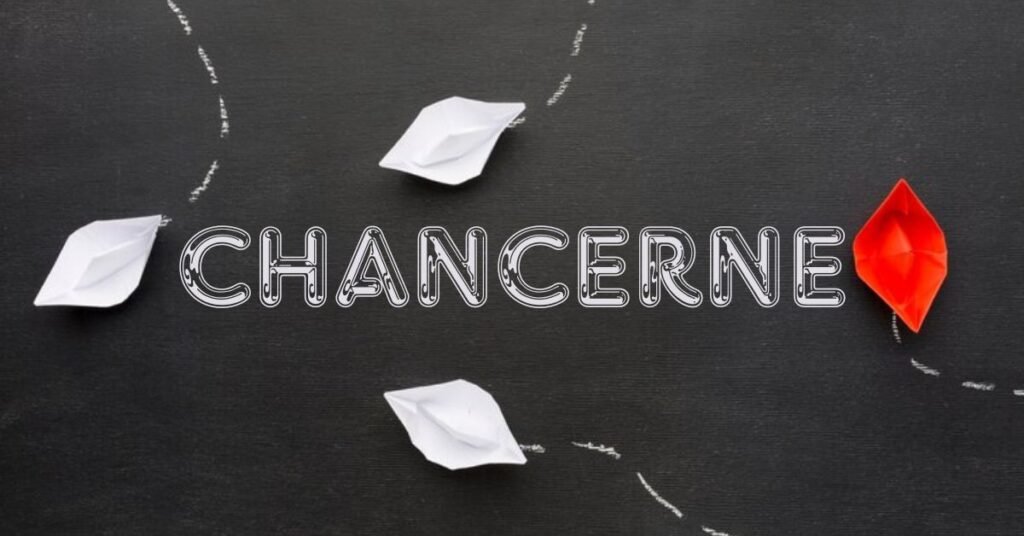In the labyrinth of life, amidst the dichotomies of fate, free will, risk, and opportunity, there exists an enigmatic concept that has captured the imaginative spaces of poets, philosophers, and ordinary folk alike. This concept, rich with layers of ambiguity, is none other than ‘Chancerne’. Join us as we peel back the veils of this alluring word, exploring its historical enigma, evolution through the ages, vibrant role in contemporary society, and the controversies that it stirs.
The Etymology of Enigma
The etymology of ‘Chancerne’ paints a picture of a term with elusive roots, hinting at a heritage that possibly spans from ancient Celtic languages, Latin, or Greek. Its early connotations wove a narrative of luck, risk, and opportunity, often associated with those daring individuals willing to test the waters of fate. In its infancy, ‘Chancerne’ may have been a descriptive moniker for the risk-takers of the past, always on the lookout for the tides of fortune to turn in their favor.
Chancerne Through the Ages
As civilizations rose and fell, so did the concept of Chancerne. It morphed into something more, a reminder that the thread of chance runs through the grand tapestry of human history. During the Renaissance, Chancerne was hailed as a muse for explorers, artists, and visionaries, underscoring the notion that the boldest ventures are often kissed by the hand of fate. In the industrial era, it sparked the imaginations of inventors and entrepreneurs, who saw in it the beacon of opportunity that could transform the world.
A Concept Reimagined in the Modern World
Today, Chancerne weaves its way through the very fabric of modern life. It is the essence of every startup founder who dares to dream, the voice of every romantic risking vulnerability for love, and the spirit of every adventurer braving unknown horizons. Chancerne also resonates with controversy, as critiques denounce the concept as a mere byproduct of entitlement or imprudence, while others champion it as the last assertion of agency against the machinery of determinism.
Diving into Controversy
The controversy around Chancerne arises from its mercurial nature. In some cases, it is the lifeblood of innovation and progress—an emblem of courage in the face of uncertainty. Yet in others, it is derided as a flimsy crutch for those avoiding strategic planning and hard work. Herein lies the crux of its controversy; the line between a calculated risk and a careless fling with fortune is often blurred in the eye of the beholder.
Cultural Significance and Philosophy
Chancerne is much more than a mere term; it is a prism through which we scrutinize our societies and our individual lives. It has been a central theme in myriad works of art, from Shakespeare’s plays to the lyrics of contemporary music. In philosophy, Chancerne engenders discourse on existential matters, pointing to the interplay between chaos and order, randomness, and destiny. Such questions have no easy answers; instead, they offer a canvas for society’s collective musings about the uncertain path we tread.
Into the Everyday Tapestry
The notion of Chancerne is not just for the scholars or the ponderous; it is a part of human life. Every person, at some point, walks at the edge of their map, where the terrain of life offers no guarantees. They question whether to step forth boldly or to retreat within the safe walls of their comfort zone. It’s at these junctures, the chancerne within each of us stirs, beckoning us to define our course through the seas of opportunity and risk.
Advice for the Adventurous Heart
For those willing to take the road less traveled, carrying the banner of Chancerne, there is wisdom in these endeavors. It advocates for preparedness without over-reliance on predictability, promoting the cultivation of intuition over the rigidity of plans. It encourages the open mind, ready to recognize and seize the unassuming hand of luck when it extends itself.
The Reckoning of Reflection
In conclusion, as we ponder the concept of Chancerne, we find ourselves not at the terminus of a quest for a singular meaning but at the crossroads of many interpretations. Chancerne, it would seem, is as multifaceted and varied as the human experience it reflects. It is both a warning against the perils of naivety and a celebration of the spirit that propels us to soar the skies of opportunity. It is a compass that we each must calibrate in our own voyage—one that marks the needle not to the North Star of certainty but to the whims of the ever-uncharted sea of life. The allure of Chancerne lies in its mystery, and the responsibility of interpretation is a gift that invites us to contemplate our existence, ultimately asking us to step beyond, to the edge, and perhaps, take the chance.
In the end, Chancerne is not merely a word; it is a companion on the meandering path we call existence. Whether you choose to walk with it or not, the mystery of Chancerne will remain, to nudge our conscious thought, to inspire new arts and sciences, to challenge and shape our lives within the greater web of life’s unscripted play.


